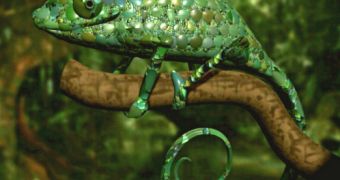A report made public by the Zoological Society of London this past February 14 states that 1 in 5 reptile species across the globe is now facing extinction.
More precisely, about 19% of the reptile species known to science thus far stand to soon fall off the biodiversity map, all because human society's constant expansion into their natural habitats.
Interestingly enough, the wildlife researchers who took the time to investigate this issue maintain that, by the looks of it, three reptile species that used to be labeled as critically endangered are quite likely to have already become extinct.
According to EurekaAlert!, the 200 wildlife specialists who pieced together this first-of-its-kind study into the global conservation status of reptiles have reached these troubling conclusions after randomly selecting 1,500 reptile species from all corners of our planet and assessing their extinction risk.
Thus, they found that, out of the total number of such animal species now threatened with extinction, 12% are labeled as critically endangered, 41% are considered endangered and 47% are thought of as vulnerable.
Commenting on the need to safeguard these animals, the report's lead author, Dr. Monika Böhm, argued as follows: “Reptiles are often associated with extreme habitats and tough environmental conditions, so it is easy to assume that they will be fine in our changing world.”
“However, many species are very highly specialised in terms of habitat use and the climatic conditions they require for day to day functioning. This makes them particularly sensitive to environmental changes,” this wildlife researcher wished to emphasize.
Interestingly enough, it seems that reptiles that live fairly close to sources of fresh water are actually doing worse than reptiles inhabiting various other natural ecosystems.
As the researchers explain, this just goes to show that freshwater biodiversity is currently facing greater threats than marine wildlife.
“Gaps in knowledge and shortcomings in effective conservation actions need to be addressed to ensure that reptiles continue to thrive around the world.”
“These findings provide a shortcut to allow important conservation decisions to be made as soon as possible and firmly place reptiles on the conservation map,” argued Dr. Ben Collen, the head of the Zoological Society of London's Indicators and Assessment Unit.

 14 DAY TRIAL //
14 DAY TRIAL //